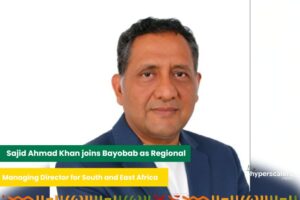In partnership with the World Bank, the Nigerian government aims to address the digital divide by raising $3 billion for an extensive broadband infrastructure expansion that will build 120,000km additional fiber optic cables in Nigeria.
Led by the Ministry of Communications, Innovations, and Digital Economy under the Minister, Dr. Bosun Tijani, this initiative promises to improveinternet access and digital services nationwide. The project consists of two phases, with the first phase, funded by the World Bank, targeting the installation of 95,000 kilometers of cables to improve immediate accessibility and digital content availability.

World Bank Regional Director Franz Drees-Gross highlights the importance of Nigeria’s dynamic digital ecosystem in Lagos and expresses confidence in the country’s potential to become a hub for West African digital services. To ensure the project’s success, Drees-Gross emphasizes the need to focus on affordability, device accessibility, relevant content, and digital skills development alongside infrastructure development.
In his comments, Drees-Gross said “We plan to set up a digital National Broadband fund and to roll out about 95,000 kilometers of what we call middle mile cable. That is the terrestrial cable in the territory of Nigeria to bring broadband to more parts of the country.”
Funding for this project will come from various sources, including the World Bank, other development finance institutions, and the private sector. Minister Bosun Tijani is optimistic about securing the required funds within the next two to three years.
This collaboration supports Nigeria’s National Broadband Plan 2020-2025, which aims for 70% broadband penetration by 2025. By improving internet access and digital services for individuals, the project also fosters a stable digital economy, creating new businesses, employment opportunities, and growth across various sectors. The success of this initiative relies on addressing the concerns mentioned by Drees-Gross, ensuring a comprehensive approach that delivers on the promise of “Broadband for All.”




